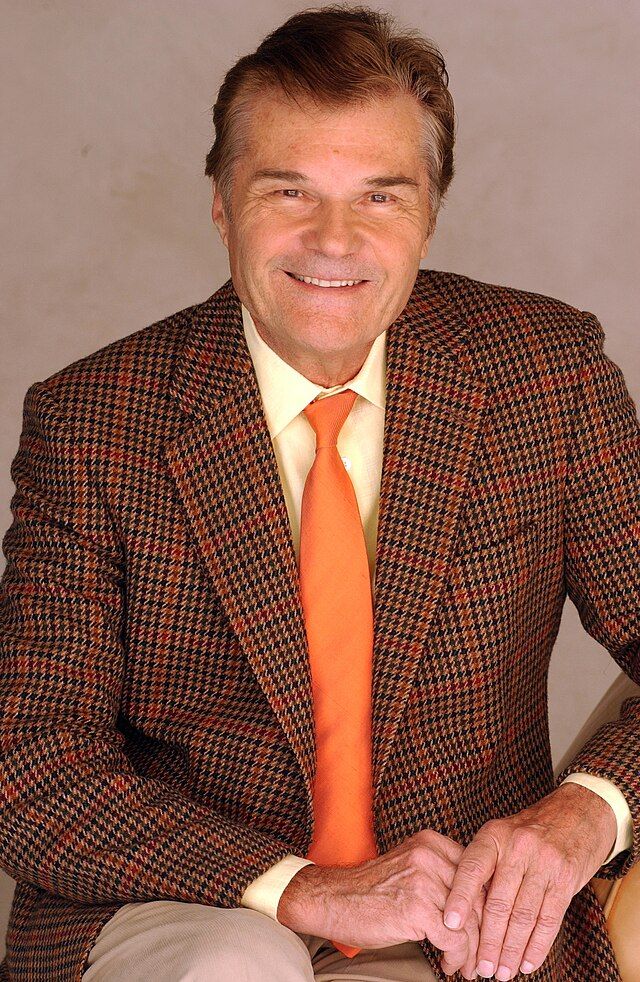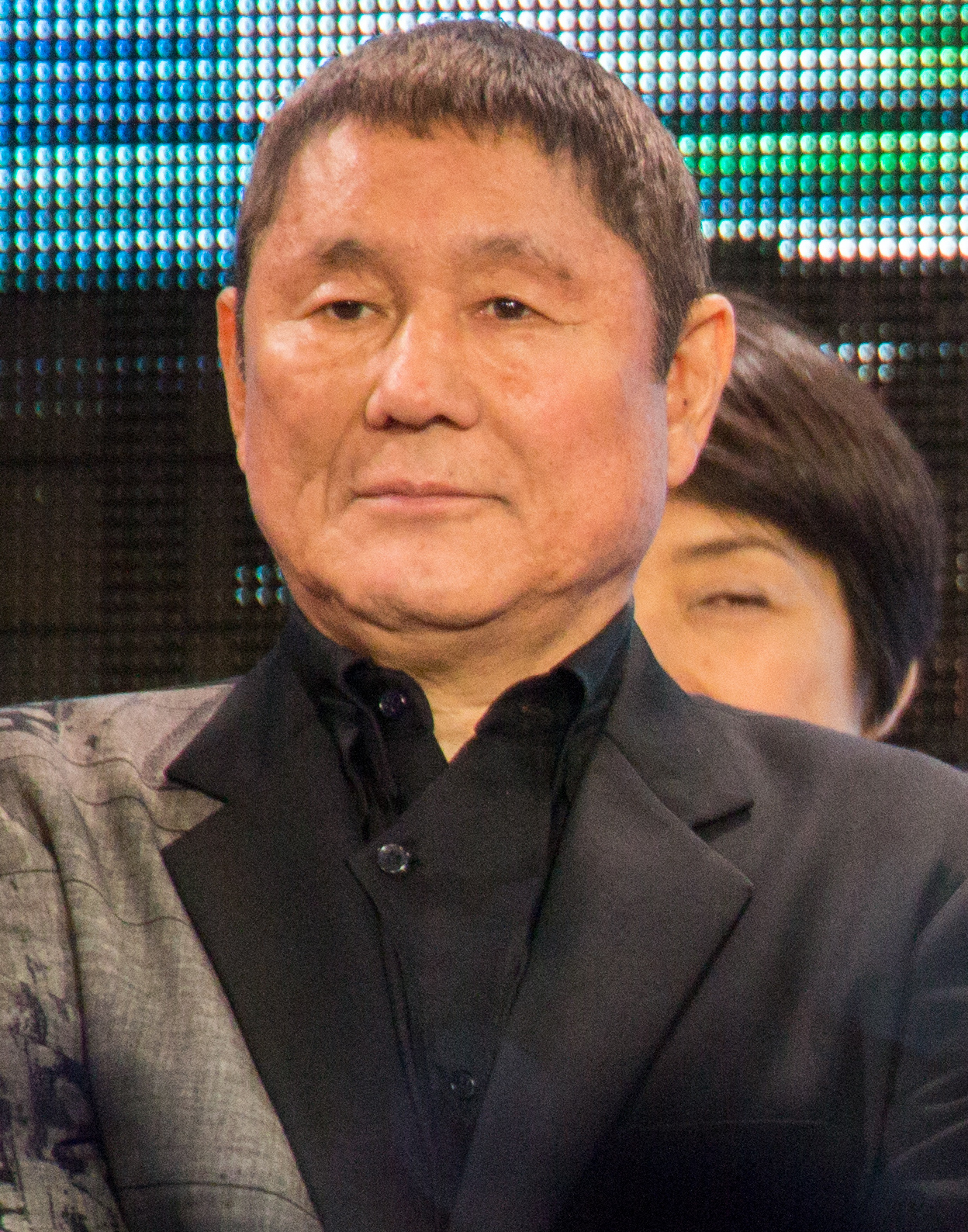
The world of classic sitcoms, those comforting, familiar shows we grew up with, often appears as a haven of laughter, heartwarming moments, and happily ever afters. We invited these characters into our living rooms, shared their triumphs, and commiserated with their woes, believing in the perfectly crafted illusions presented on screen. Yet, behind the scenes, away from the watchful eyes of adoring fans and often shielded by powerful studios, a different kind of drama was unfolding – one filled with surprising twists, shocking betrayals, and deeply personal struggles that remained hidden for years.
Sometimes the biggest scandals weren’t about onscreen antics but the real-life turmoil gripping the stars we adored. From sudden departures to alleged misconduct, and from fierce battles over salaries to incredibly unfair treatment, the sitcom landscape of yesteryear was a hotbed of controversies that could make any modern reality show blush. These were the stories producers desperately tried to keep under wraps, the whispers that circulated among crew members, and the moments that forever altered the course of beloved shows and the careers of the actors involved.
Prepare to pull back the curtain on some of the most jaw-dropping, previously covered-up scandals that simmered behind the smiles and laugh tracks of your favorite classic sitcoms. We’re talking about the real drama that proves sometimes, truth is far stranger, and often much messier, than fiction. Get ready to have your perceptions of sitcom history completely flipped as we explore the untold stories of what really went down when the cameras stopped rolling.

1. **Mackenzie Phillips’ Struggle on *One Day at a Time***Back in the 1970s, *One Day at a Time* captivated audiences with its groundbreaking portrayal of a single mother raising her family. The show was a pioneer, and at its heart was a young, promising actress, Mackenzie Phillips, who played one of the daughters. For many, she was a familiar face, a part of their weekly television ritual, representing the everyday struggles and joys of growing up. However, the brightness on screen masked a much darker reality unfolding behind the scenes, a struggle that would ultimately lead to a shocking outcome.
Unbeknownst to much of the public at the time, Phillips was battling a severe addiction problem, a challenge that deeply affected her performance and reliability. The pressures of fame, coupled with personal demons, created an unsustainable situation. While the show continued to garner popularity, the producers were grappling with an incredibly difficult decision, one that directly impacted the future of a key character and the show’s overall stability. It’s truly a heartbreaking reminder that even the most cherished public figures face intense private battles.
The situation eventually reached a breaking point, and in a move that sent ripples through the production, producers made the agonizing choice to fire Mackenzie Phillips from the show. This drastic measure highlighted the severity of her addiction, a struggle that was largely kept out of the public eye during the show’s original run. Her departure was a significant moment, forcing the series to adapt and leaving fans unknowingly wondering about the fate of a character they had come to love, all while the real, painful truth remained a tightly guarded secret.

2. **Michael Richards’ Post-*Seinfeld* Meltdown**For years, Michael Richards was a household name, synonymous with the eccentric, beloved character of Kramer from the iconic sitcom *Seinfeld*. His physical comedy and unique delivery made him a fan favorite, carving out a permanent place in the pantheon of television legends. However, after *Seinfeld* concluded, Richards found himself, like many actors from hugely successful shows, struggling to step out of the shadow of his unforgettable role. It was a challenge that, sadly, culminated in a moment that would forever define his post-*Seinfeld* career.
In 2006, years after his sitcom heyday, Richards attempted a return to the stage, performing a stand-up routine. What began as an effort to reinvent himself quickly devolved into a jaw-dropping and deeply offensive tirade. During his performance, Richards unleashed a hateful speech, using racial slurs against audience members. The incident was not just a lapse in judgment but a public breakdown that shocked onlookers and quickly went viral in the nascent age of internet media. It was a stark, brutal contrast to the lovable, goofy character he was known for.
The fallout was immediate and catastrophic. The ensuing media storm was relentless, rightfully condemning Richards’ actions and leaving any hope of his career recovering in tatters. This wasn’t just a misstep; it was a career-ending scandal that underscored the severe consequences of public racism and cemented a painful end to his public persona. The beloved Kramer was gone, replaced by the memory of a hateful speech, serving as a powerful lesson in accountability and the indelible mark of public disgrace.

3. **Charlie Sheen’s *Anger Management* Power Play**After his highly publicized and tumultuous departure from *Two and a Half Men*, Charlie Sheen quickly landed another sitcom, *Anger Management*, proving his enduring appeal despite the off-screen chaos. The show’s first season featured the talented Selma Blair as a co-star, and for a time, it seemed like Sheen had found a new, stable home. However, the calm was deceptive, and it wasn’t long before the volatile nature that characterized his previous exit began to surface once more, leading to another dramatic conflict.
According to various sources, Blair reportedly earned Sheen’s wrath when she dared to call him out on set. The specific details of their disagreement remain somewhat veiled, but the tension escalated rapidly, culminating in a powerful showdown. Sheen, leveraging his significant influence as the show’s star, allegedly used his sway to pressure producers into firing Blair. This bold move effectively removed his perceived obstacle, showcasing a concerning display of power and control within the production hierarchy.
Selma Blair, as one might expect, did not take her abrupt dismissal lying down. She promptly threatened both Charlie Sheen and the producers behind *Anger Management* with legal action. While the exact outcome of these legal threats is not explicitly detailed, her readiness to pursue legal avenues underlined the seriousness of the situation and the clear imbalance of power on the set. Her departure, however, marked another chapter in Sheen’s tumultuous career and raised eyebrows about the star’s on-set behavior.

4. **Kirk Cameron’s *Growing Pains* Demands***Growing Pains* was a bona fide hit, and at the center of its success was Kirk Cameron, who rapidly ascended to teen heartthrob status, becoming the undeniable face of the show. This newfound fame and adoration granted him considerable power and influence over the network and production decisions. He was at the peak of his youthful celebrity, a magnetic presence who captivated millions, and with that came an unexpected ability to make significant demands that would ripple through the series.
At the young age of 17, Cameron experienced a profound personal transformation, becoming a born-again Christian. This spiritual awakening brought with it a shift in his perspective and, crucially, his tolerance for certain public images. He suddenly took serious issue with his co-star, Julie McCullough, who had previously appeared in *Playboy* magazine. What might seem like a personal moral stance quickly became an on-set controversy, challenging the professional dynamics and creating an unforeseen conflict within the beloved sitcom family.
Leveraging his star power, Cameron shockingly demanded that McCullough be fired from *Growing Pains*. The network, seemingly swayed by their lead actor’s influence, conceded to his demands. This drastic decision forced the show’s writers into an awkward scramble, as they had to re-edit an upcoming wedding episode where their characters were originally slated to marry. It was a stunning display of a star’s personal beliefs directly impacting the careers of others and the narrative direction of a major network show, a move that went largely unspoken about publicly at the time.
Read more about: From Refusals to Real Pain: Unforgettable Times When Movie Scenes Became Brutally Real for Actors

5. **Sasha Mitchell’s *Step by Step* Exit**For fans of 90s television, Sasha Mitchell was a memorable presence, known for bringing the eccentric character of Cody Lambert to life in the popular sitcom *Step by Step*. As the cool, slightly goofy nephew living with the extended family, Cody provided much of the show’s comedic relief and was a beloved character in the blended household. His martial arts background often made its way into his character, adding another layer of charm to his portrayal. However, his time on the hit series came to an abrupt and scandalous end, leaving viewers wondering about his sudden disappearance.
Mitchell’s tenure on *Step by Step* concluded in its fifth season under a cloud of controversy. The reason for his sudden departure was deeply unsettling: authorities had detained him for domestic violence against his spouse. This serious legal issue immediately brought production to a halt regarding his involvement and cast a dark shadow over his public image. It was a stark and shocking reminder that the cheerful facade of television can often hide difficult and troubling realities in the lives of those who entertain us.
The legal troubles rendered Mitchell’s continued presence on the show untenable, leading to his effective removal from the series. His absence meant the show had to write out a popular character, disrupting the established family dynamic and leaving a gap in the cast. While the specifics of his real-life ordeal were not widely discussed in mainstream media at the time, his abrupt disappearance from one of television’s most wholesome family sitcoms was a direct consequence of very serious, off-screen issues.

6. **The *Fresh Prince* Aunt Viv Drama***The Fresh Prince of Bel-Air* remains a cornerstone of 90s pop culture, and for the first three seasons, Janet Hubert-Whitten delivered an iconic, fiery, and deeply loved portrayal of Aunt Viv. She was the matriarch with an incredible presence, often serving as the strong, wise voice of reason (or sometimes, justified anger) for the Banks family. However, audiences were left stunned when, returning for its fourth season, the role of Aunt Viv was suddenly recast with Daphne Maxwell Reid, and the switch was never explicitly addressed on screen, creating a lingering mystery for fans.
Behind this baffling change lay a very public and bitter feud between Hubert and the show’s burgeoning star, Will Smith. Hubert initially claimed that her dismissal was the result of a vendetta against her, suggesting a targeted effort to remove her. Smith, in turn, went on the offensive in interviews, publicly stating that Hubert was difficult to work with and possessed an overwhelming ego. This “he said, she said” narrative painted a picture of intense on-set tension, a far cry from the lighthearted family dynamic portrayed on television.
For decades, the animosity between Hubert and Smith festered, becoming one of sitcom history’s most enduring and sad behind-the-scenes stories. A reconciliation seemed almost impossible, a wound too deep to heal. However, in a surprising and incredibly poignant moment during the 2020 *Fresh Prince* reunion, Hubert finally got the chance to tell her side of the story, explaining the circumstances from her perspective. It was a long-awaited conversation, offering a measure of healing and closure to a scandal that had overshadowed the show’s legacy for far too long.

7. **Bill Cosby’s *A Different World* Pregnancy Purge**Bill Cosby, at the height of his fame, was lauded as America’s favorite father figure, parlaying his wholesome image from *The Cosby Show* into a spin-off, *A Different World*. This new series followed Denise Huxtable, played by the talented Lisa Bonet, as she embarked on her college journey. The show was an instant hit, building on the success of its predecessor and offering a new avenue for beloved characters. However, what began as a promising expansion of the Cosby universe quickly spiraled into a controversy fueled by the star’s personal wrath.
During her time on *A Different World*, Lisa Bonet became pregnant with her daughter, Zoe, a real-life event that, in a more enlightened age, would likely be embraced or sensitively written into a storyline. But this was not to be the case. The news of Bonet’s pregnancy reportedly enraged Bill Cosby, who was meticulously curating a particular family-friendly image across his television empire. Her personal life, it seemed, had clashed dramatically with his carefully constructed public persona, leading to a tense and uncomfortable situation on set.
Cosby, wielding immense power as the show’s creator and executive producer, made a shocking decision: he dismissed Lisa Bonet from *A Different World* after her pregnancy became apparent. This move underscored his desire for absolute control over the image projected by his shows and the personal lives of his stars, even at the cost of losing a popular character and a talented actress. It was a stark example of how, in that era, a star’s personal choices could lead to severe professional repercussions, kept quietly behind the scenes to maintain a pristine, albeit manufactured, image.
8. **The *Three’s Company* Salary Showdown and Feud***Three’s Company* was the kind of show that relied on a delightfully silly premise: a man pretending to be gay so he could live with two female co-eds, Suzanne Somers and Joyce DeWitt. Audiences loved the hijinks and misunderstandings, but behind the scenes, the show was far from a harmonious household. While the on-screen chemistry might have seemed effortless, the reality of working together, especially when it came to paychecks, was anything but.
The women on the show, Suzanne Somers and Joyce DeWitt, later revealed that the show’s producers had not treated them very well. This underlying tension was further exacerbated by a growing feud between the two stars themselves. As the seasons progressed and the show’s popularity soared, Somers began to demand higher salaries, believing she deserved to be compensated on par with her male contemporaries in the industry. It was a bold stance for the time, challenging the traditional pay structures that often undervalued female talent.
When Somers’ requests for equal pay were repeatedly denied, the situation turned frosty. Instead of meeting her demands, producers chose a different, more punitive route: they dramatically diminished her role in the series. This wasn’t just a minor cut; it was a clear signal of their displeasure, designed to sideline her. Ultimately, their standoff escalated, and the producers made the decision to “can” her, abruptly ending her tenure on the hit show in a move that shocked fans and colleagues alike.
Her departure left a gaping hole in the show’s dynamic, and it was a stark reminder of the battles actors faced, particularly women, when advocating for fair compensation. While the show tried to move on, the behind-the-scenes drama underscored the fierce power struggles that often play out in Hollywood, proving that even the most comedic setups can hide serious professional grievances and personal feuds.
Read more about: Talk About Drama! The 10 Most Shocking TV Set Feuds That Rewrote Our Favorite Shows

9. **The *Three’s Company* Nude Photo Controversy**With Suzanne Somers out, *Three’s Company* faced the challenge of introducing a new character to fill the void, and they did so by bringing in Priscilla Barnes. She stepped into the role with the unenviable task of integrating into an already established and beloved cast. However, just as the show was attempting to regain its footing and move past the previous drama, another unexpected scandal rocked the production, adding a different kind of controversy to its history.
The new revelations weren’t about on-set feuds or salary disputes this time, but rather a more personal and public matter. Nude photos of Priscilla Barnes, the new actress, surfaced in *Penthouse* magazine. In the conservative era of network television, this was a massive bombshell, threatening the show’s family-friendly image and potentially alienating a significant portion of its audience. It was the kind of headline producers desperately tried to avoid.
The appearance of these photos created an immediate media frenzy and an awkward situation for everyone involved with *Three’s Company*. It forced the network and production team to navigate the delicate balance between managing public perception and protecting their star, all while trying to keep the focus on the show’s comedic roots. This incident highlighted the intrusive nature of celebrity culture and the moral judgments placed upon actors, especially women, regarding their past choices.
The scandal served as a potent example of how an actor’s personal life, even actions taken long before joining a show, could suddenly become front-page news and significantly impact a prime-time television series. It added another layer of complexity to the already tumultuous behind-the-scenes story of *Three’s Company*, proving that when it comes to classic sitcoms, the drama off-screen could be just as captivating, if not more, than the laugh tracks.

10. **Valerie Harper’s Battle and the Renaming of *Valerie***In the late 1980s, Valerie Harper, a beloved actress, was given a truly golden opportunity: her own sitcom titled *Valerie*. The show followed the character of Valerie Hogan as she navigated the challenges of raising three sons while her husband was frequently away, a premise that resonated with many viewers. It was a testament to Harper’s talent and popularity, and the show quickly gained a loyal following, with its ratings picking up steam.
As the show’s success grew, so did Harper’s value to the network. Naturally, when the ratings indicated a burgeoning hit, Harper sought a raise in salary, a reasonable request given the show’s increasing profitability and her central role. However, this perfectly understandable demand earned her the ire of the producers, who were evidently unwilling to share the increased profits with their star. This disagreement set the stage for a tense standoff, one that would dramatically alter the show’s future.
When the producers flatly refused to grant her request for a higher salary, Harper took a principled stand and walked away from the show. This was a bold move, effectively leaving her own titular series. It was a powerful statement against what she perceived as unfair treatment, showcasing an actress willing to sacrifice her leading role for what she believed was right. Her departure sent shockwaves through the entertainment industry, leaving everyone wondering what would happen to *Valerie*.
In a move widely seen as an act of petty revenge, and perhaps a desperate attempt to salvage the series without its lead, producers simply renamed the show *The Hogan Family*. The show continued, but without its original star, a decision that underscored the contentious nature of salary negotiations in Hollywood and the lengths studios would go to maintain control. It remains a fascinating example of how a star’s demand for fair pay could lead to a dramatic character elimination and a show literally losing its namesake.

11. **The *Mighty Morphin’ Power Rangers* Racial Casting Blunder**For many kids of the 90s, *Mighty Morphin’ Power Rangers* was a thrilling, action-packed phenomenon, featuring a diverse group of teenagers who secretly saved the world. Though formatted like a kids’ show, it certainly followed an episodic structure reminiscent of sitcoms, with its high school drama and villain-of-the-week battles. However, beneath the colorful costumes and martial arts sequences, the show gained controversy almost immediately for a rather embarrassing series of casting decisions.
The show’s casting choices for two key Rangers quickly raised eyebrows and sparked debate. Trini, who portrayed the Yellow Ranger, was played by Asian-American actress Thuy Trang. Meanwhile, Zack, the Black Ranger, was played by Black actor Walter Emanuel Jones. The racial overtones of assigning specific colors to actors of corresponding ethnicities were immediately noticed by audiences and critics alike, leading to accusations of a rather insensitive and stereotypical approach to character representation.
The public outcry forced the producers into an awkward scramble. They quickly attempted to address the criticism, making it explicitly clear that this was supposedly an “accident” in casting. Their denials, however, did little to quell the skepticism, with many finding it difficult to believe such a correlation could be purely coincidental. It became a prominent example of how unintentional (or perhaps simply unacknowledged) biases could manifest in popular media.
This incident highlighted the lack of cultural sensitivity in some productions at the time and the increasing awareness among audiences regarding representation. The “accidental” color coding remains a curious footnote in the *Power Rangers’* legacy, serving as a reminder that even shows aimed at children are not immune to controversies surrounding diversity and stereotypical portrayals, and that some explanations simply don’t pass the sniff test.
12. **Toxic Set and Homophobia on *Mighty Morphin’ Power Rangers***As if the racial casting controversy wasn’t enough, *Mighty Morphin’ Power Rangers* harbored another deeply troubling scandal behind the scenes, one that painted a picture of a truly toxic work environment. This particular drama remained hidden from the public eye for years, only coming to light much later, revealing a painful truth about the struggles faced by one of its beloved stars.
David Yost, who famously played the Blue Ranger, abruptly left the show in the middle of filming. His sudden departure was shrouded in mystery at the time, leaving fans to wonder about the fate of their favorite brainy hero. The reason why, as Yost later bravely revealed, was appalling: the crew had actively mocked him because he was gay. This relentless harassment created an unbearable atmosphere, making his workplace a source of constant torment.
The constant taunts and discriminatory behavior from colleagues had a devastating impact on Yost. He revealed that the harassment was so severe it drove him to seek conversion therapy, a harmful and discredited practice, and ultimately led to a nervous breakdown. It’s an incredibly heartbreaking account of the prejudice and intolerance he endured while trying to do his job, highlighting the severe emotional toll such environments can take.
Yost’s courageous decision to speak out years later, after he had accepted himself for who he was, shed a crucial light on the rampant homophobia that existed in some parts of the entertainment industry during that era. His experience stands as a powerful testament to the hidden struggles many LGBTQ+ individuals faced and the urgent need for inclusive and respectful workplaces, proving that even seemingly wholesome children’s shows can conceal a dark history of on-set misconduct and bigotry.

13. **Cindy Williams’ Forced Departure from *Laverne & Shirley****Laverne & Shirley*, a hugely popular spin-off of *Happy Days*, brought laughter into millions of homes, thanks in no small part to the comedic talents of its co-lead, Cindy Williams. The show, which followed the escapades of two working-class friends, became a cultural touchstone, but its successful run came to an unexpected end after its eighth season due to a sudden and controversial departure.
The reason for the show’s conclusion stemmed directly from Williams’ decision to leave the production abruptly. To be fair to Williams, her departure was not arbitrary or a result of a typical Hollywood feud; she was pregnant and facing an incredibly challenging situation with the show’s producers. In an era when workplace accommodations for pregnant women were far from standard, Williams found herself in an untenable position.
Shockingly, the producers refused to grant her any time off for her pregnancy, pushing her to continue working under increasingly difficult circumstances. The situation reached its absurd and infuriating peak when they even scheduled her to work on her due date. This blatant disregard for her well-being and her impending motherhood was, understandably, the “last straw” for the actress, forcing her hand in a dramatic exit.
Williams’ departure brought the highly successful series to an end, highlighting a deeply unfair and discriminatory practice that was unfortunately common in the industry at the time. Her experience served as a potent example of the struggles professional women faced when trying to balance their careers with starting a family, and it remains a stark reminder of the battles for basic human rights and fair treatment that have slowly, but surely, gained ground in Hollywood workplaces.

14. **Martin Lawrence’s Wild Antics and Tisha Campbell’s Lawsuit on *Martin***During the 1990s, Martin Lawrence’s sitcom *Martin* was a massive draw, captivating audiences with its star’s energetic performance and often outrageous humor. The show was a cultural phenomenon, but behind the scenes, away from the camera’s cheerful gaze, the production was quickly falling apart. Lawrence himself embarked on a series of increasingly erratic behaviors, many of which were reportedly exacerbated by substance use, leading to a truly chaotic set environment.
The word “antics” almost feels too light to describe some of Lawrence’s actions. The situation escalated to an alarming degree, as exemplified by an incident where Lawrence reportedly brought a loaded firearm to the set. This was far beyond typical celebrity drama; it was a serious safety concern that created an atmosphere of fear and unpredictability, transforming a comedic workplace into a dangerous one.
The disturbing details of Lawrence’s behavior on set did not stay hidden for long, largely thanks to his co-star, Tisha Campbell. In a courageous move that brought the behind-the-scenes turmoil to the forefront, Campbell filed a lawsuit against Lawrence and the sitcom’s production company in 1997. Her legal action was a direct response to the untenable working conditions and alleged misconduct, shining a spotlight on the severe issues plaguing the production.
Campbell’s lawsuit sent shockwaves through the industry, and her willingness to return to work came with a very specific, non-negotiable condition: she and Lawrence would never appear on set together again. This extraordinary demand forced the show’s producers and writers to perform “several backflips” to make the series finale work, implementing creative staging and editing tricks to ensure the two stars remained separated. It was a dramatic conclusion to a tumultuous production, cementing its place as one of the most infamously chaotic sitcom sets in history and a testament to an actress’s fight for her safety and well-being.
As we pull back the final curtain on these once-hushed tales, it’s clear that the sitcoms we so fondly remember were often breeding grounds for drama far more intense than any on-screen storyline. From battles over pay and personal beliefs to shocking allegations of misconduct and outright discrimination, these stories remind us that the perfect families and hilarious friendships we watched unfold were often just that: perfectly crafted illusions. The echoes of these scandals, once swept under the rug, serve as powerful lessons, revealing the human cost behind the laughter and forever altering how we view the golden age of television. It’s a wild ride through history that proves when it comes to Hollywood, the real plot twists often happen off-camera, reminding us that every star, no matter how bright, has a story that goes beyond the script.





